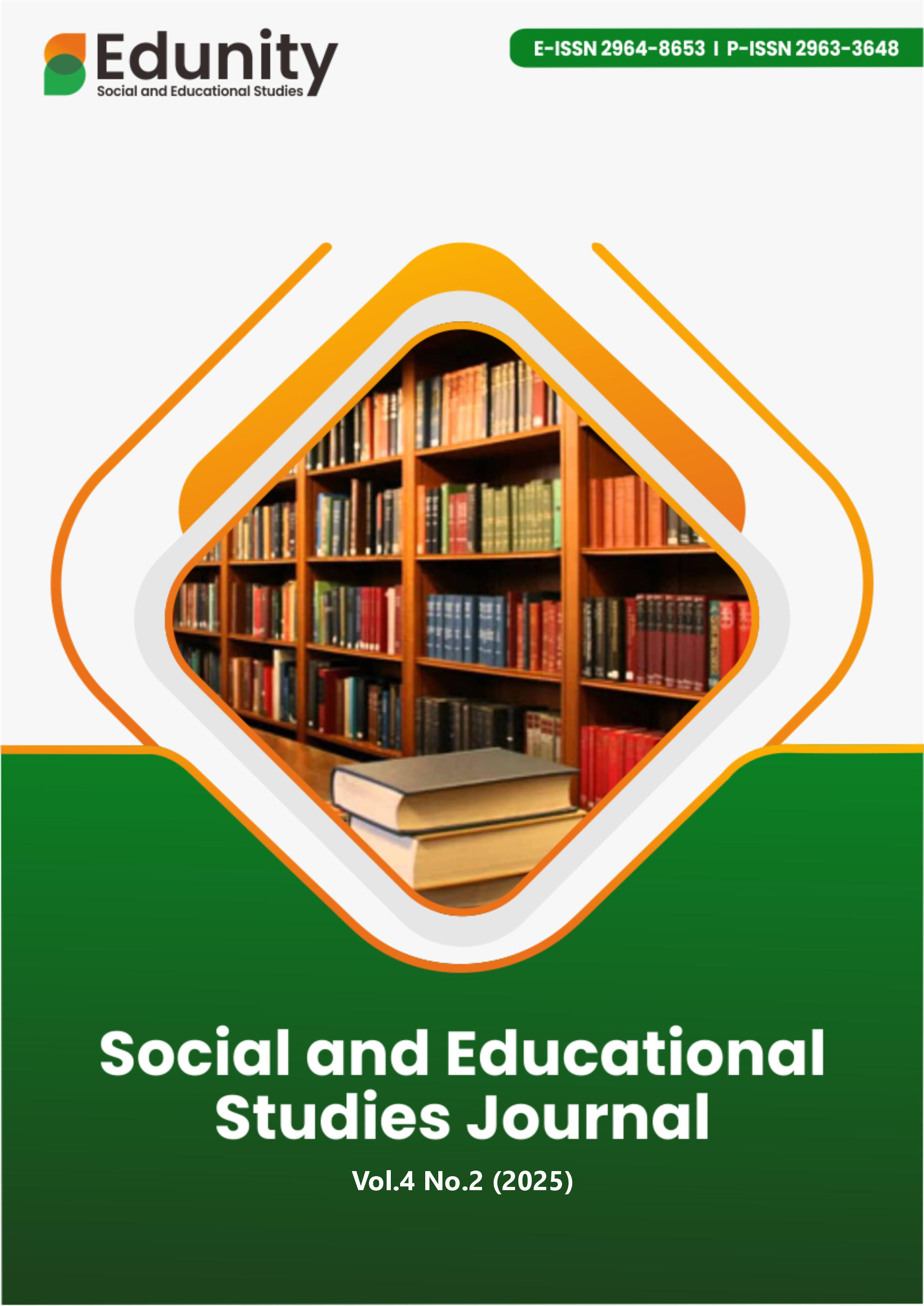A Comparative Study on Traffic Impact Assessment
DOI:
https://doi.org/10.57096/edunity.v4i2.372Keywords:
phenomenology, urban commuting, transportation challenges, resilience, lived experiencesAbstract
This phenomenological study explores the lived experiences of urban commuters, aiming to understand the complexities of daily transportation struggles and resilience. Using in-depth interviews with 30 commuters in a metropolitan city, the research examined the emotional, social, and economic effects of transportation challenges on well-being. Thematic analysis revealed key themes: frustration with congestion, anxiety from uncertainty, and the resourcefulness of coping strategies. Narratives showed how transportation is deeply intertwined with work and personal life, shaping routines and affecting quality of life. Commuters described adaptive strategies to navigate and resist the stresses of urban mobility, from time management to emotional regulation. The findings offer a nuanced, contextualized view of urban commuting, contributing to the literature on transportation and mobility. This study underscores the importance of integrating commuter perspectives into urban planning, transportation policy, and community development, with the goal of improving livability, reducing stress, and promoting sustainable mobility in growing metropolitan areas.
References
Khan, S., & Rahman, M. (2020). Comparison of traffic impact assessment (TIA) and
transportation assessment (TA). Journal of Transportation Engineering, 146(10),
doi: 10.1061/JTEPBS.0000335
Al-Mansoori, S. H., & Al-Ghazali, A. M. (2019). Traffic impact assessment using
geographic information systems (GIS). Journal of Geographic Information System,
(5), 743-755. doi: 10.4236/jgis.2019.115040
Li, Z., & Wang, Y. (2020). A comparative study on traffic modeling techniques.
Transportation Research Part C: Emerging Technologies, 111, 102744. doi:
1016/j.trc.2020.102744
Rahman, M., & Khan, S. (2020). Comparative study on traffic impact assessment
methods. Proceedings of the 2020 International Conference on Transportation and
Logistics, 1-6.
Wang, Y., & Li, Z. (2019). Traffic impact assessment for sustainable urban planning.
Proceedings of the 2019 International Conference on Sustainable Urban Planning,
-8.
World Bank. (2019). Traffic impact assessment guidelines. World Bank Publications.
Federal Highway Administration. (2020). Traffic impact assessment report. Federal
Highway Administration.
Rahman, M. (2020). A comparative study on traffic impact assessment methods for urban
areas (Master's thesis, University of Dhaka).
Khan, S. (2019). Traffic impact assessment for highway development projects (Ph.D.
dissertation, University of Engineering and Technology).
Transportation Research Board. (2020). Traffic impact assessment: A guide for
practitioners. Transportation Research Board.
Institute of Transportation Engineers. (2019). Transportation planning and traffic impact
assessment. Institute of Transportation Engineers.
Al-Mansoori, S. H., & Al-Ghazali, A. M. (2020). A comparative study on traffic impact
assessment methods for rural areas. doi: 10.20944/preprints202007.0341.v1
Li, Z., & Wang, Y. (2019). Traffic impact assessment for land use planning. doi:
20944/preprints201912.0341.v1
Yayat, K. D., Kombaitan, B., & Purboyo, H. H. (2016). Traffic impact assesment practice
in Indonesia. Procedia-Social and Behavioral Sciences, 227, 75-80.
Estévez-Mauriz, L., & Forssén, J. (2018). Dynamic traffic noise assessment tool: A
comparative study between a roundabout and a signalised intersection. Applied
Acoustics, 130, 71-86.
Guerrieri, M., Casto, B. M. L., Peri, G., & Rizzo, G. (2020). Smart vs conventional
motorways: Environmental impact assessment under realistic traffic conditions.
Science of the Total Environment, 727, 138521.

Downloads
Published
Issue
Section
License
Copyright (c) 2025 Abdul Qadir Jilani, Roohi Naeem, Rana Shoaib, Kashif Hussain, Saira Ashraf, Ammar Yasir

This work is licensed under a Creative Commons Attribution-ShareAlike 4.0 International License.
Authors who publish with this journal agree to the following terms:
- Authors retain copyright and grant the journal right of first publication with the work simultaneously licensed under aCreative Commons Attribution-ShareAlike 4.0 International (CC-BY-SA). that allows others to share the work with an acknowledgement of the work's authorship and initial publication in this journal.
- Authors are able to enter into separate, additional contractual arrangements for the non-exclusive distribution of the journal's published version of the work (e.g., post it to an institutional repository or publish it in a book), with an acknowledgement of its initial publication in this journal.
- Authors are permitted and encouraged to post their work online (e.g., in institutional repositories or on their website) prior to and during the submission process, as it can lead to productive exchanges, as well as earlier and greater citation of published work.







